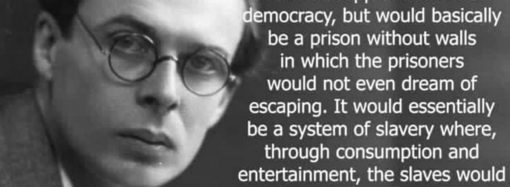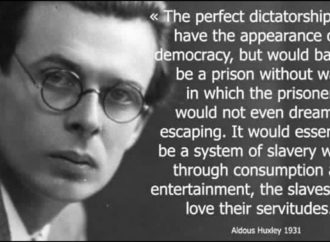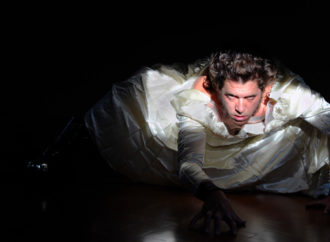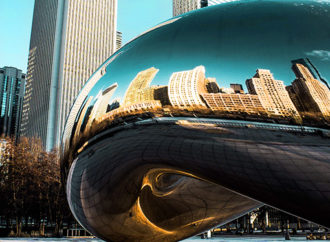When philosophy, enlightening humanity,Must lead them in peace to the feet of the common master;Frightful fanaticism will tremble to appear there:

This statement by Voltaire was so famous that Flaubert included it in his Dictionary of received ideas , and it is still frequently quoted today. But where does it first appear? And what precisely did Voltaire mean when he wrote it? Does it imply, as most of Voltaire’s parrots seems to suppose, that God is a fictitious being, created for the comfort of the human race?
In its original form, the statement first appeared in a verse epistle from 1768, addressed to the anonymous author of a controversial work, The Three Impostors . According to Voltaire, this was a virulently atheistic text that denied the existence of a divine being. He found that this was an extremely dangerous work since it put into question a notion that was very useful for society: the idea that criminals would be punished in the afterlife. Thus, even when policing was insufficient, there was a strong deterrent against crime.
In this poem, Voltaire develops in a general way the idea that the existence of God (or the belief therein) helps establish social order. He then goes on to boast of his own role in eliminating prejudice and injustice in the eighteenth century. In its final sections, the poem turns to personal satire, as Voltaire attacks some of his favorite enemies.
As such, the text shows many of Voltaire’s complexities, both in his philosophy and in his personality. Although he attacked the abuses of the Catholic Church throughout his life, he also spoke as a defender of religion on many occasions. If he is today often portrayed as a radical opponent of all religious sentiment, this is largely the result of accusations from his opponents and nineteenth-century polemical exchange.
Note: In publishing this text, it is not the wish of the Voltaire Society of America to begin theological or religious debate. We simply hope to shed some light on the origins of Voltaire’s statement. If you with to copy the text, you are welcome to do so.
Voltaire [1768], Epître to the author of the book of Three impostors
( Complete Works of Voltaire, ed. Louis Moland [Paris: Garnier, 1877-1885], volume 10, pp. 402-405)
Insipid writer, who believes in your readers
Pencil the portraits of your Three Impostors,
Where does it come from that, without spirit, you do the fourth?
Why, poor enemy of the supreme essence,
do you confuse Mahomet with the Creator,
and the works of man with God, its author? …
Correct the servant, but respect the master.
God must not suffer from the foolishness of the priest:
Let us recognize this God, although he is very badly served.
My home is full of lizards and rats;
But the architect exists, and whoever denies him
Under the mantle of the sage is afflicted with mania.
Consult Zoroaster, and Minos, and Solon,
And the martyr Socrates, and the great Cicero:
They all worshiped a master, a judge, a father.
This sublime system for man is necessary.
It is the sacred bond of society,
The first foundation of holy equity,
The restraint of the villain, the hope of the just.
If the heavens, stripped of its august imprint,
Could ever cease to manifest it,
If God did not exist, it would have to be invented.
Let the wise announce it, and let kings fear it.
Kings, if you oppress me, if your greatness disdains
The tears of the innocent that you make flow,
My avenger is in heaven: learn to tremble.
Such is at least the fruit of a useful belief.
But you, false reasoner, whose sad imprudence
In the path of crime dares to reassure them,
What fruit can you draw from your fine arguments?
Will your children with your voice be more docile?
Your friends, if need be, more secure and more useful?
Your more honest wife? and your new farmer, In
order not to believe in God, will he pay you better? …
Ah! let us leave fear and hope to humans.
You object to me in vain the hypocrite insolence
Of these proud charlatans with high honors,
Nourished by our labors, our watered tears;
Caesars degraded usurped greatness;
A priest in the Capitol where Pompey triumphed;
Sandals in sandals, human excrement,
Soaking their hateful hands in our blood;
A hundred cities with their voices covered with ruins,
And with bloody Paris the horrible matins:
I know better than you these dreadful monuments;
I have them under my pen exposed fifty years.
But, out of this formidable enemy fanaticism,
I made God worship when I conquered the devil.
I always distinguished from religion
The misfortunes that superstition brought.
Europe was grateful to me; twenty crowned heads
Deigned to applaud my fortunate watches,
While Patouillet insulted me in vain.
I did more in my time than Luther and Calvin.
We saw them oppose, by a fatal error,
Abuses to abuses, scandal to scandal.
Among the factions eager to throw themselves,
They condemned the Pope, and wanted to imitate him.
Europe, through them all, was for a long time desolate;
They troubled the earth, and I comforted it.
I said to the fiercely disputants one over the other:
“Cease, impertinent; cease, unfortunate ones;
Most foolish children of God,
And do not bite yourselves any more for absurd chimeras. “
The good people believed me: the crushed rascals
uttered cries of the scorned sage;
And in Europe at last the happy tolerantism
Of any well done mind becomes the catechism.
I see those times coming from afar, those serene days,
When philosophy, enlightening humans,
Must lead them in peace to the feet of the common master;
The dreadful fanaticism will tremble to appear there:
We will have less dogma with more virtue.
If someone of a job wants to be clothed,
He will no longer bring two witnesses to follow him [2]
Swear what is his faith, but what is his conduct.
To the attractive sister of a big beneficiary
A Huguenot lover can get married;
Of the treasures of Loreto, amassed for Mary,
Poverty will be seen dressed and fed;
Sarah’s children, whom we call dogs,
Will eat ham smoked by Christians.
The Turk, without inquiring whether the iman forgives him,
Chez l’Abbé Tamponet will go and drink in the Sorbonne. [3]
My nephews will dine cheerfully and cheerfully
With the heirs of the Pompignan brothers;
They will be able to forgive this harsh La Blétrie [4] For
having cut the weft of my life too soon.
Between the beautiful minds we will see the union:
But who can ever have supper with Fréron?
Voltaire’s Notes
[1] This book of the Three Impostors is a very bad work, full of crude atheism, without spirit, and without philosophy.
[2] In France, to be received as a prosecutor, notary, clerk, you need two witnesses who testify to the recipient’s catholicity.
[3] Tamponet was indeed a doctor at the Sorbonne.
[4] La Bletterie, I was told, printed that I had forgotten to be buried.
Voltaire [1768], “Epistle to the author of the book, The Three Impostors” .
Insipid writer, you pretend to draw for your readers
The portraits of your 3 impostors;
How is it that, witlessly, you have become the fourth?
Why, poor enemy of the supreme essence,
Do you confuse Mohammed and the Creator,
And the deeds of man with God, his author? …
Criticize the servant, but respect the master.
God should not suffer for the stupidity of the priest:
Let us recognize this God, although he is poorly served.
My lodging is filled with lizards and rats;
But the architect exists, and anyone who denies it
Is touched with madness under the guise of wisdom.
Consult Zoroaster, and Minos, and Solon,
And the martyr Socrates, and the great Cicero:
They all adored a master, a judge, a father.
This sublime system is necessary to man.
It is the sacred tie that binds society,
The first foundation of holy equity,
The bridle to the wicked, the hope of the just.
If the heavens, stripped of his noble imprint,
Could ever cease to attest to his being,
If God did not exist, it would be necessary to invent him.
Let the wise man announce him and kings fear him.
Kings, if you oppress me, if your eminencies disdain
The tears of the innocent that you cause to flow,
My avenger is in the heavens: learn to tremble.
Such, at least, is the fruit of a useful creed.
But you, faulty logician, whose sad foolishness
Dares to reassure them in the path of crime,
What fruit do you expect to reap from your fine arguments?
Will your children be more obedient to your voice?
Your friends, at time of need, more useful and reliable?
Your wife more honest? and your new renter,
For not believing in God, will he pay you better?
Alas! let’s leave intact human belief in fear and hope.
In vain you raise as an objection to me the hypocritical insolence
Of these proud charlatans promoted to high honors,
Nourished by our work, quenched by our tears;
Of these Caesars tainted by their usurped grandeur;
A priest on the Capitoline hill where Pompea triumphed;
Of these wretches in sandals, the excrement of humanity,
Soaking there detestable hands in our blood;
At the sound of their voice a hundred towns are covered in ruins,
And the horrible matins of bloodied Paris:
I know these awful monuments better than you;
I have unmasked them with my pen for the past fifty years.
But, as the fearsome enemy of this fanaticism,
I have also celebrated God when the devil was vanquished.
I always distinguished between religion
And the misery bred of superstition.
Europe has thanked me; twenty crowned heads
Have deigned to applaud the fortunate labors of my nights,
While Patouillet was insulting me in vain.
I have done more in my time than Luther and Calvin.
They were seen opposing, in a fatal error,
Abuses with abuses, scandal with scandal.
Eager to throw themselves amidst the factions,
They condemned the pope and wanted to imitate him.
Europe was long desolated by them all;
They troubled the earth, and I have consoled it.
I have told the disputants, hounding one another:
“Cease, impertinent ones, cease, unfortunate ones;
Foolish children of God, cherish yourselves in your brothers,
And stop biting one another for absurd chimeras.”
Good people have believed me: the evil ones, crushed,
Have hurled cries that are scorned by the wise man;
And in Europe, finally, happy toleration
Has become the catechism of all well made souls.
I see from afar that era coming, those happy days,
When philosophy, enlightening humanity,
Must lead them in peace to the feet of the common master;
Frightful fanaticism will tremble to appear there:
There will be less dogma with more virtue.
If someone wants to assume an official position,
He will no longer bring along two witnesses [2]
To testify to his beliefs; rather they will swear to his good conduct.
A Huguenot lover will be able to marry
The attractive sister of an important cleric;
We will see poverty clothed and nourished
With the treasures of the Loretto, amassed for Mary;
The children of Sarah, whom we treat like dogs,
Will eat ham that has been cured by Christians.
The Turk, without asking whether the imam will pardon him,
Will go drink with the abbé Tamponet at the Sorbonne. [3]
My nephews will dine gaily and with no ill will
With the descendants of the Pompignan brothers;
They will be able to pardon this harsh La Blétrie [4]
For having cut short the course of my life.
We will see a reunion of the finest minds:
But who will ever be able to bear dining with Fréron?
Voltaire’s Notes
[1] This book of the Three Imposters is a very dangerous work, full of coarse atheism, without wit and devoid of philosophy.
[2] In France, in order to be accepted as procure, notary, clerk, one needs two witnesses who confirm the Catholicism of the recipient.
[3] Tamponet was, in fact, a doctor at the Sorbonne.
[4] La Bletterie, as I have been told, has stated in print that I have forgotten to have myself buried.
































Leave a Comment
Your email address will not be published. Required fields are marked with *